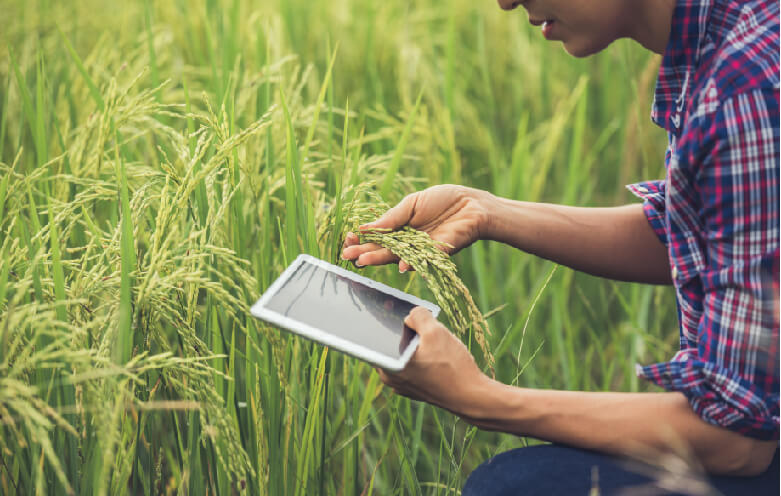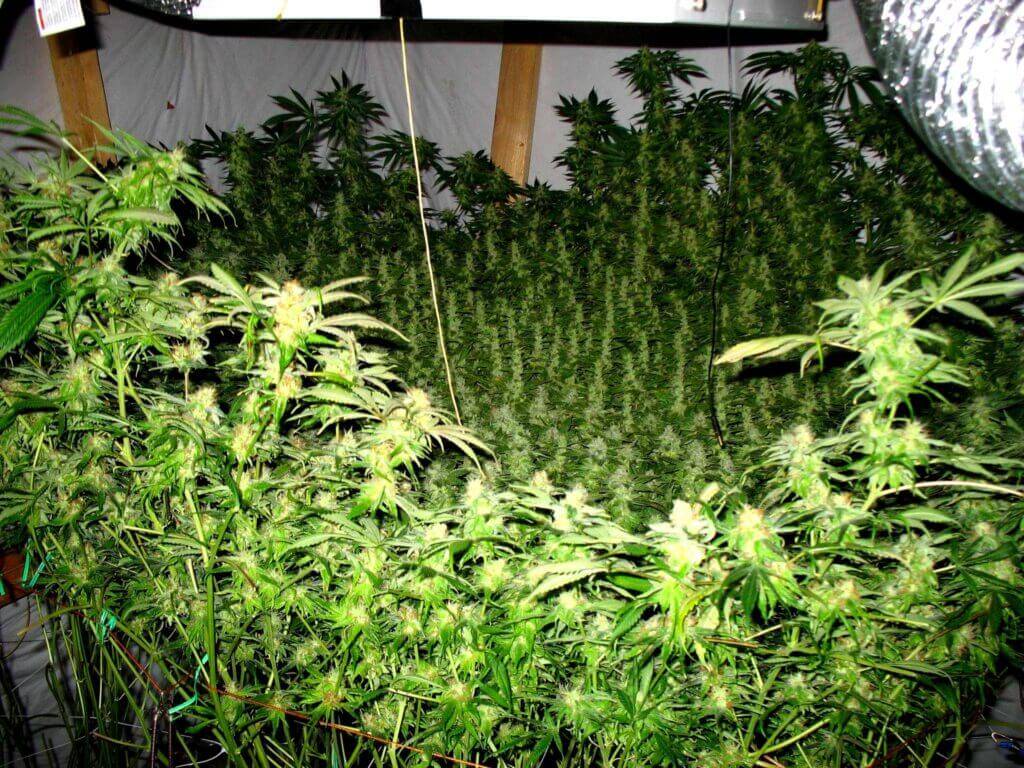Contents
- Understanding The Role Of CO2 In Plant Growth
- CO2 As A Vital Element For Photosynthesis
- Impact Of CO2 Levels On Plant Growth And Yield
- Significance Of Accurate CO2 Detection
- Importance Of Precise CO2 Monitoring In Agricultural Settings
- Benefits Of Optimizing CO2 Levels For Plant Health And Productivity
- CO2 Detection Technologies
- Types Of CO2 Detection Systems For Agriculture
- Invasive CO2 Detection Systems
- Non-Invasive CO2 Detection Systems
- Advantages And Limitations Of Different CO2 Detection Methods
- Advantages of Invasive CO2 Detection Systems
- Limitations of Invasive CO2 Detection Systems
- Advantages of Non-Invasive CO2 Detection Systems
- Limitations of Non-Invasive CO2 Detection Systems
- Implementing Accurate CO2 Detection
- Integrating CO2 Detection Systems In Greenhouse Environments
- Strategies For Utilizing CO2 Detection Data For Plant Growth Optimization
- Future Outlook And Innovations
- Advancements In CO2 Detection Technology For Agriculture
- The Potential Impact Of Enhanced CO2 Detection On Sustainable Farming Practices
- Frequently Asked Questions Of Importance Of Accurate CO2 Detection For Plant Growth In Agriculture?
- What Is The Importance Of Monitoring CO2 Levels For Plant Growth?
- How Does CO2 Detection Impact Plant Health In Agriculture?
- What Are The Benefits Of Using Precise CO2 Measurement In Agriculture?
- Conclusion
Accurate CO2 detection is crucial for plant growth in agriculture, as it directly impacts photosynthesis and overall plant health. Ensuring the right CO2 levels is essential for maximizing crop yields and quality, making it a vital consideration for agricultural success.
In modern agriculture, the precise monitoring of CO2 levels is essential for optimizing plant growth and productivity. By accurately detecting CO2 levels, farmers can create ideal growing conditions, leading to improved photosynthesis, nutrient uptake, and ultimately, higher yields. Additionally, monitoring CO2 enables better resource utilization and environmental sustainability, contributing to the overall efficiency and success of agricultural operations.
As such, the importance of accurate CO2 detection for plant growth in agriculture cannot be overstated, and it remains a critical aspect of modern farming practices.
Understanding The Role Of CO2 In Plant Growth
Understanding the Role of CO2 in Plant Growth
CO2 As A Vital Element For Photosynthesis
Carbon Dioxide (CO2) is an essential component for the process of photosynthesis in plants. During photosynthesis, plants absorb CO2 from the air and, with the help of sunlight and water, convert it into carbohydrates and oxygen. This process is vital for the growth and development of plants, as it provides them with the energy they need to thrive.
Impact Of CO2 Levels On Plant Growth And Yield
The levels of CO2 in the environment have a significant impact on the growth and yield of plants. Adequate CO2 levels can enhance the rate of photosynthesis and increase the production of carbohydrates and biomass in plants. On the other hand, low CO2 levels can lead to reduced growth and yield, affecting the overall productivity of agricultural crops. Therefore, monitoring and maintaining optimal levels of CO2 is crucial for ensuring healthy and robust plant growth.
Significance Of Accurate CO2 Detection
The Significance of Accurate CO2 Detection cannot be overstated when it comes to optimizing plant growth and productivity in agricultural settings. Precise CO2 monitoring is crucial for ensuring that plants receive the optimum level of carbon dioxide, a key factor in their photosynthesis process. When it comes to agricultural productivity, the right levels of CO2 can make a significant difference in the health and yield of crops.
Importance Of Precise CO2 Monitoring In Agricultural Settings
Accurate CO2 monitoring is of paramount importance in agricultural settings due to its direct impact on plant growth and overall productivity. Maintaining the appropriate CO2 levels ensures that plants can effectively photosynthesize, leading to enhanced growth rates, improved nutrient utilization, and ultimately, higher yields. Without precise CO2 monitoring, there is a risk of suboptimal levels that can hinder the plants’ ability to thrive, leading to stunted growth and reduced productivity.
Benefits Of Optimizing CO2 Levels For Plant Health And Productivity
Optimizing CO2 levels offers several benefits for plant health and productivity in agriculture. This includes enhanced photosynthesis, which leads to improved biomass production and higher crop yields. Additionally, optimized CO2 levels can result in better disease resistance and improved stress tolerance in plants, contributing to overall healthier crops with increased market value.
CO2 Detection Technologies
CO2 detection technologies play a crucial role in agriculture, especially in controlled environment agriculture (CEA) systems such as greenhouses and vertical farms. These systems require precise monitoring and management of CO2 levels to optimize plant growth and enhance crop yield. Accurate CO2 detection is essential for maintaining the ideal growing conditions, as fluctuations in CO2 levels can directly impact photosynthesis, transpiration, and overall plant health.
Types Of CO2 Detection Systems For Agriculture
Invasive CO2 Detection Systems
Invasive CO2 detection systems involve physically extracting air samples from the specific areas within the agricultural environment, and then analyzing the samples to measure the CO2 concentration levels. These systems are typically precise in their measurements, as they directly capture air samples, providing accurate real-time data for growers to make immediate adjustments to maintain a healthy growth environment.
Non-Invasive CO2 Detection Systems
Non-invasive CO2 detection systems utilize sensors that can measure CO2 levels without physically interfering with the agricultural setting. These sensors often rely on infrared technology to detect CO2 concentrations, offering a more cost-effective, convenient, and non-disruptive solution for continuous monitoring and control of CO2 levels within the agricultural facility.
Advantages And Limitations Of Different CO2 Detection Methods
Advantages of Invasive CO2 Detection Systems
- Highly accurate measurements
- Real-time data for immediate adjustments
- Precise control of CO2 levels
Limitations of Invasive CO2 Detection Systems
- Requires physical intervention and equipment
- Potential for contamination of samples
- Higher maintenance and operational costs
Advantages of Non-Invasive CO2 Detection Systems
- Cost-effective and convenient installation
- Continuous monitoring without disruption
- Minimal maintenance requirements
Limitations of Non-Invasive CO2 Detection Systems
- Less precise than invasive systems
- May have limitations in detecting localized CO2 fluctuations
Implementing Accurate CO2 Detection
When it comes to optimizing plant growth in agriculture, implementing accurate CO2 detection is crucial for ensuring the ideal environment for plants to thrive. Integrating CO2 detection systems and utilizing the data obtained can significantly impact the success of agricultural operations in greenhouse environments.
Integrating CO2 Detection Systems In Greenhouse Environments
Integrating CO2 detection systems in greenhouse environments involves the installation and maintenance of sensors that accurately monitor and measure the levels of CO2 within the controlled atmosphere. These sensors can be strategically placed throughout the greenhouse to ensure comprehensive coverage and precise data collection.
By implementing an effective CO2 detection system, agricultural professionals can gain real-time insights into the CO2 levels, allowing for prompt adjustments and control measures to maintain optimal conditions for plant growth.
Strategies For Utilizing CO2 Detection Data For Plant Growth Optimization
Utilizing CO2 detection data for plant growth optimization involves analyzing the collected data to make informed decisions about CO2 supplementation and environmental adjustments. This data can be used to develop targeted strategies for enhancing photosynthesis and overall plant productivity.
By leveraging the insights from CO2 detection, agricultural practitioners can implement tailored approaches to CO2 enrichment, ensuring that plants receive the ideal levels of CO2 necessary for their growth and development. This data-driven strategy can lead to improved resource utilization and enhanced crop yields.
Future Outlook And Innovations
The future of agriculture is poised for significant advancements in CO2 detection technology, which will have a profound impact on sustainable farming practices. Innovations in CO2 detection for plant growth in agriculture are set to revolutionize the industry, offering improved precision and control over environmental conditions within agricultural settings.
Advancements In CO2 Detection Technology For Agriculture
Recent developments in CO2 detection technology have paved the way for more accurate and real-time measurement of carbon dioxide levels in agricultural environments. Advanced sensors and monitoring systems can now provide precise data on CO2 concentrations, allowing farmers and agricultural professionals to optimize plant growth conditions and improve crop yields.
The Potential Impact Of Enhanced CO2 Detection On Sustainable Farming Practices
Enhanced CO2 detection has the potential to usher in a new era of sustainable farming practices by enabling more efficient resource utilization and reducing environmental impact. With better insights into CO2 levels, farmers can implement targeted interventions to enhance plant growth, reduce waste, and minimize the use of non-renewable resources.

Frequently Asked Questions Of Importance Of Accurate CO2 Detection For Plant Growth In Agriculture?
What Is The Importance Of Monitoring CO2 Levels For Plant Growth?
Maintaining accurate CO2 levels is crucial for promoting photosynthesis and maximizing plant growth. By monitoring CO2 levels, farmers can ensure that their crops receive the optimal conditions for healthy development, leading to higher yields and improved quality.
How Does CO2 Detection Impact Plant Health In Agriculture?
Accurate CO2 detection allows farmers to identify and address any imbalances in the greenhouse environment, enabling them to create ideal growing conditions for plants. This ensures that plants receive the necessary CO2 for photosynthesis, which is essential for healthy and robust growth.
What Are The Benefits Of Using Precise CO2 Measurement In Agriculture?
Precise CO2 measurement enables farmers to optimize plant growth, leading to increased yields and improved crop quality. By maintaining the appropriate CO2 levels, agricultural practitioners can enhance the efficiency of their operations, ultimately contributing to sustainable and profitable farming practices.
Conclusion
Accurate CO2 detection is vital for optimizing plant growth in agriculture. By monitoring and maintaining CO2 levels, farmers can enhance yield and quality of crops. Implementing advanced CO2 detection technologies can greatly benefit the agricultural industry and contribute to sustainable and efficient farming practices.



